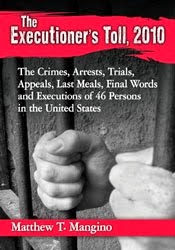Matthew T. Mangino
Commentary
Commentary
The Philadelphia Inquirer
March 30, 2016
The purported deal between former Montgomery County District
Attorney Bruce Castor and Bill Cosby has had an immediate impact on Cosby's
prosecution. No, it hasn't resulted in the case being thrown out - yet - but it
has resulted in the prosecution being delayed and derailed.
Defense attorneys contend that the charges against Cosby
violated an agreement struck in 2005 with Castor. Cosby's lawyers say Castor
promised not to prosecute the comedian if he agreed to testify in a civil
lawsuit filed by his accuser, Andrea Constand.
First the delay: The case is on hold while the Superior
Court considers the current Montgomery County district attorney's motion to
quash the appeal filed by Cosby challenging the court order allowing the
criminal case to proceed.
Now the derailment: Setting aside that Constand is suing
Castor and the new district attorney is fighting Castor's subpoena seeking his
2005 investigation files, there is a lot more at stake than the prosecution of
a high-profile defendant for a particularly salacious crime.
The underlying issue is, can an accused rely on the promise
of a prosecutor? The answer will have ripple effects for the entire criminal
justice system.
When Cosby was charged, only days before District Attorney
Kevin Steele took office, his attorneys immediately requested the charges be
dismissed because of a deal with Castor more than a decade ago.
At a hearing seeking dismissal of Cosby's charges, Castor
was called as the first witness. Castor testified that last year, he contacted
then-District Attorney Risa Vetri Ferman to tell her to "tread
carefully." The media attention was intense at the time as the Cosby case
became an issue in the Montgomery County district attorney race between Castor
and Steele.
"I knew that I had bound the commonwealth, as
representative of the sovereign, not to arrest Mr. Cosby ... and I wanted to
make sure that she [Ferman] didn't make a mistake and go ahead and move against
Cosby," Castor testified.
Castor declined to prosecute Cosby for sexual assault of
Constand in 2005. At the time, he explained, "The district attorney finds
insufficient credible and admissible evidence exists upon which any charge
against Mr. Cosby could be sustained beyond a reasonable doubt." He
continued, "Much exists in this investigation that could be used [by
others] to portray persons on both sides of the issue in a less than flattering
light."
Steele suggested that new evidence unearthed in the years
since Castor declined to prosecute Cosby had made the case viable once again.
He claimed that the information derived from Cosby's deposition was an
important factor in his decision to file charges.
When he was asked why the agreement wasn't memorialized in
writing, Castor's response, as summarized by the Legal Intelligencer, was that
"he felt it was not appropriate at the time, since no civil case had yet
been filed. He said it would be a suggestion that Cosby did something wrong,
and that he wanted to use transactional immunity, which he said is a function
of the district attorney."
District attorneys are bound by agreements, written or
sealed with a handshake, every day. For instances, the plea bargain, the grease
that keeps the criminal justice system rolling, is based on an offer and
acceptance - known in legal parlance as a contract. A defendant who relies on a
contract to his detriment can force that contract to be honored.
Cosby was not compelled to testify. He did not invoke his
Fifth Amendment right. Cosby voluntarily entered into an agreement, a contract,
to testify in the civil case in exchange for not being prosecuted criminally.
Cosby would have been protected by the U.S. Constitution if
he refused to be deposed by Constand's attorneys. Instead, relying on the
district attorney's promise, Cosby testified. Now, ignoring that commitment,
the new district attorney is zealously trying to get out of the deal.
Such conduct is not without consequences - namely, distrust
for the system and a chilling effect on cooperating, testifying, and even
agreeing to plea bargains.
Matthew T. Mangino is of counsel with Luxenberg, Garbett,
Kelly & George. He is a former district attorney of Lawrence County and the
author of "The Executioner's Toll." mmangino@lgkg.com
Visit The Inquirer CLICK HERE







